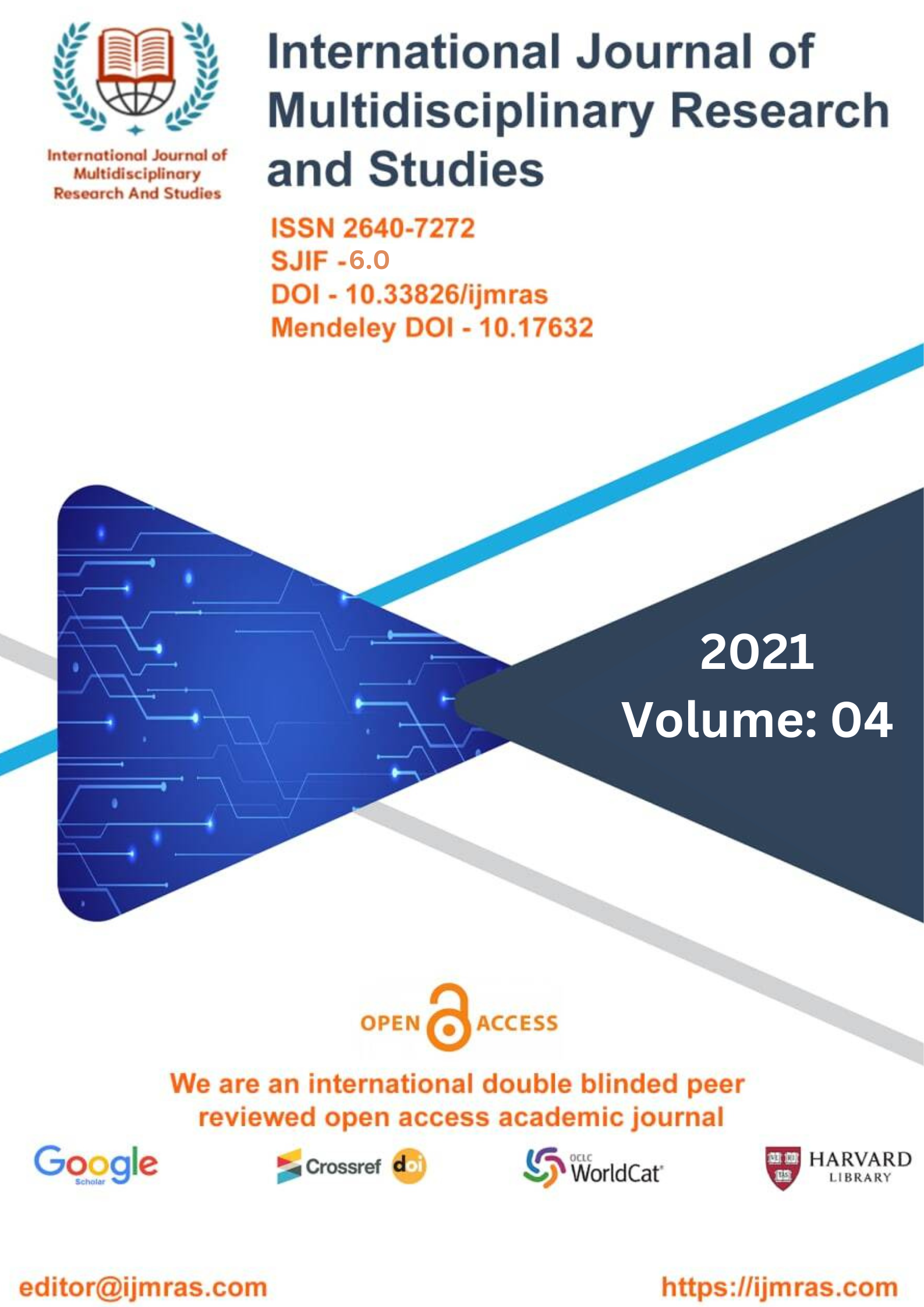STUDY ON THE NOVELS OF AMIT CHAUDHARI

Abstract
Great literature is simply language that has been maximally charged with meaning (Pound 36). Each language has its own literature, which is a kind of language that has a profound impact on people's brains throughout history. It is widely acknowledged that literature reflects society, that it serves as a record of social experience, that it embodies societal myths, objectives, and goals, and that it organises social norms and penalties (Albrecht 426). A book created at a given time captures the people, their ideas, their traditions, and the influences of that era because literature is the mirror of society. Therefore, literature can be described as a serious and structured portrayal of the actual views about various aspects of life that writers generate or modify. Literature writers have a key role in transferring social reality into creative writing, using it to serve as a mirror for society to examine itself and make necessary corrections. Literature, in the words of Boris Pasternak, is "the skill of discovering something remarkable about ordinary people and saying something amazing with ordinary words" (brainyquote.com). There are many distinct types of literature, including poetry, folktales, theatre, autobiographies, short stories, essays, and novels. The novel is the most widely read form of literature because it has the most potential for studying both societal culture and individual life. The novel's genre encompasses a variety of types and structures, including romantic, realist, historical, picaresque, epistolary, and gothic. Just like a painter employs distinctive paints and brushes to produce beautiful images, novelists or fiction writers employ a range of tactics to create impactful and noteworthy stories.
Keywords
Novels, Language, Literature, CultureHow to Cite
References
Chaudhuri, Amit. Odysseys Abroad. Kindle ed., Penguin, 2015.
Garg, Shivali. “A Critical Study of Amit Chaudhari’s Selected Fiction.” Quest Journal, vol 7, no.7, 2019, pp.9-12.
Nilagundi, Alina. “The Dilemma of identity in Amit Chaudhari’s Novels Afternoon Raag and Odysseus Abroad.’’ The Global Journal of Literary Studies, vol 2, no 1, 2016, pp.
Parekh, Bhikhu. “Some Reflections on the Indian Diaspora.” Journal of Contemporary Thought, vol 3, 1993. pp.106.
Roy, Hareshwar. Diaspora and Indian Diaspora: A Brief Study. Kindle ed, 2018. pp.12-29.
Rushdie, Salman. Imaginary Homeland, Essays and Criticism, London: Grants Books, 1993. pp.10
Calcutta: Two years in the City. Published, Feb14, 2013. (amazon.com.)
“Cosmopolitanism’s Alien Face”. New Left Review 55 (2009)
‘D.H. Lawrence and “Difference”: Post Coloniality and the poetry of thePresent’. Oxford. 2003.
Coe, Jonathan. “Doing Justice to the Mess”. Afternoon Raag. London Review of Books.19 August, 1993. P. ,24.
Kerridge, Jake. “Amit Chaudhuri : A page in the life”. 21 Feb, 2013.
Soneshwar, Sodhi. Book review: The Immortals by Amit Chaudhuri. The Long Walk Home.Wednesday, April 15, 2009.
Sinha, Surrender Prasad. English in India. Patna: Janaki Prakashan, 1978.
Wigand, Druid, “Fragments of India”: Amit Chaudhary Draws Realistic Portraits of
Chaudhuri, Amit. Clearing a Space: Reflections on India, Literature and Culture. Oxford: Peter Lang, 2008.
Chaudhuri, Amit. Afternoon Raag. Penguin Books, 2012. Print.
Kadekar, Laxmi Narayan. The Indian Diaspora. Rawat Publication, 2009. Print.
“Cultural Amnesia in Amit Chaudhuri’s A New World.” Studies in Postcolonial Literature. Eds. Bijay Kumar Das, and M. Q. Khan. New Delhi: Atlantic, 2007. Print.
License
Copyright (c) 2021 Sanjay Kumar

This work is licensed under a Creative Commons Attribution 4.0 International License.
Individual articles are published Open Access under the Creative Commons Licence: CC-BY 4.0.




